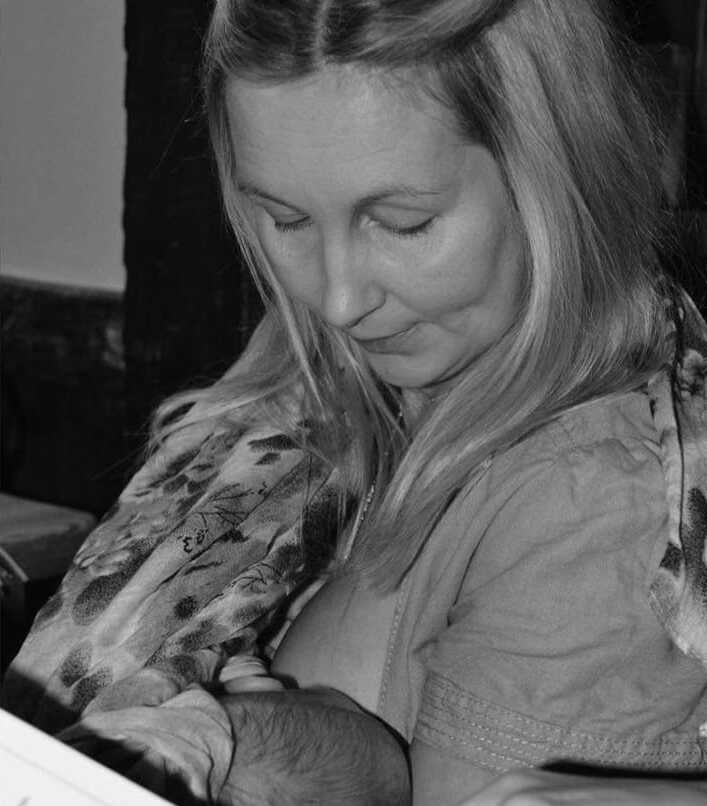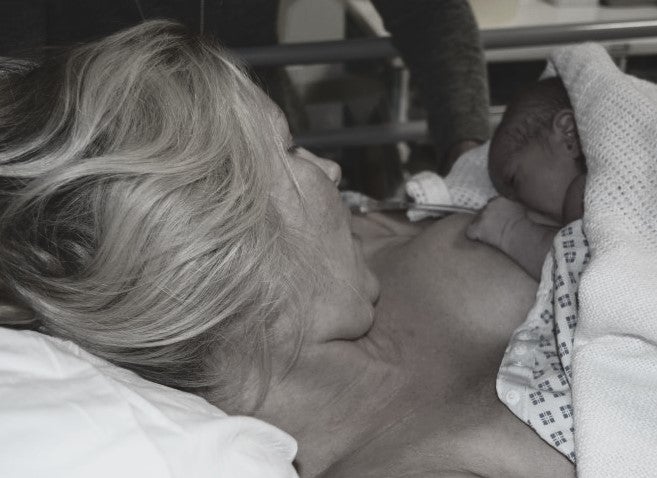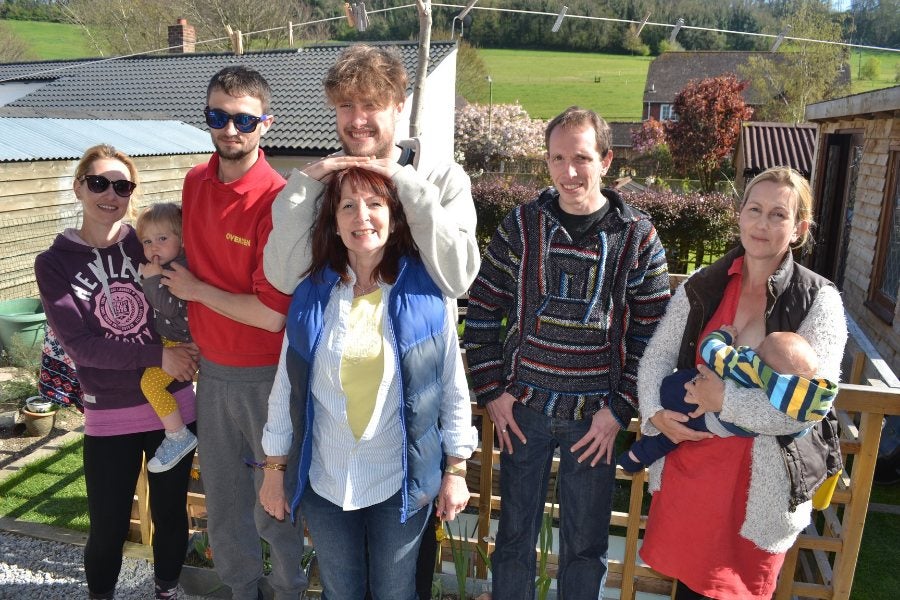Woman reveals ‘catastrophic shock’ of daughter’s suicide months after giving birth
As suicide continues to be the leading cause of death for mothers in the year after they give birth, one woman retells the harrowing story of losing her daughter in 2017


Your support helps us to tell the story
This election is still a dead heat, according to most polls. In a fight with such wafer-thin margins, we need reporters on the ground talking to the people Trump and Harris are courting. Your support allows us to keep sending journalists to the story.
The Independent is trusted by 27 million Americans from across the entire political spectrum every month. Unlike many other quality news outlets, we choose not to lock you out of our reporting and analysis with paywalls. But quality journalism must still be paid for.
Help us keep bring these critical stories to light. Your support makes all the difference.
Rebecca Kruza, “exhausted” with the challenges of new motherhood, spent months “battling” for support for the depression which had been plaguing her following her son’s birth.
Despite not having any previous mental health conditions, Rebecca’s mental health had become so bad in the months after giving birth to her first son that she sought private therapy and was prescribed the antidepressant Mirtazapine.
Just two weeks later she took her own life.
Revealing her story to The Independent, Rebecca’s mother Lynn Richardson, who tragically found her daughter’s body, is calling for UK regulators to review the safety measures for mothers who are given Mirtazapine, which is known to induce suicidal thoughts and has been linked to the deaths of 31 people since 2020.
“It shattered our world as the loyal, compassionate and caring matriarch, mother, daughter, partner and sister was gone. No goodbyes,” Ms Richardson said.
It was only after Rebecca’s death that the family found out the scale of Rebecca’s struggle with the NHS during those months of being a new mother.
During her pregnancy, Rebecca was under the care of East Kent Hospitals Foundation Trust, which has been the centre of a major inquiry into maternity failings.

In 2016 she went into labour, which her mother described as “traumatic” following the failed use of forceps, her son was born ventouse - which is an instrument that uses suction cup on the baby’s head.
She was left so badly impacted by the birth that “relaxing in the coming weeks was difficult” her mother said.
“This meant her start in motherhood was more exhausting and stressful than most, compounded as baby had an undiagnosed tongue tie, causing feeding and gastric problems.”
Tongue tie is where tissue connects the tongue to the floor of the mouth too tightly which can interfere with feeding.
“This went uncorrected until he was over 4 months old, consequently, he slept little and screamed a lot in distress.”
During this time Rebecca became “frazzled” and felt like she wasn’t a good mother.
Despite her worsening state, her mother said she was “treated like a nuisance by the professionals she sought help from” and began to “dread” asking them for help.
According to Ms Richardson health visiting services discharged her daughter into her GP’s care, who then advised medication and Cognitive Behavioral Therapy which did not help.

“Her mental health deteriorated very quickly and the health visitor, GP and other professionals who were meant to support her and coordinate her care failed to do so, even failing to inform members of her family that she was expressing suicidal thoughts and feelings,” says her mum.
Rebecca soon began to feel “afraid and ashamed” and eventually was forced to turn to private therapy services run by the Priory Group.
The psychiatrist assigned to care for her prescribed Mirtazapine.
A spokesperson for Priory said: “This was a tragic situation for everyone involved and our thoughts remain with Rebecca’s family. As highlighted during the inquest in 2018, Rebecca’s treatment was tailored to meet her needs balanced against her experience of side effects and tolerance of anti-depressant medication, with consultations aimed at sustaining engagement and providing the support she needed.
“We conducted a full investigation into the care Rebecca received with us, shared these findings with the coroner and co-operated fully with the inquest into Rebecca’s death.”
Last month The Independent revealed the story of another woman, Louise Murmut, who had to “beg” for specialist mental health care following the birth of her son and also suffered suicidal thoughts after she was placed on Mirtazapine.
Mirtazapine carries a bold warning on boxes in the USA over side effects, which include inducing anxiety and suicidal thoughts.
However, the UK does not routinely use black box warnings and the UK’s medicines regulator the Medicines and Healthcare products Regulatory Agency has also not issued a specific alert over the drug.
According to the MHRA there have been 42 “fatalities” where suicide and suicidal thoughts have been a factor recorded in relation to this anti-depressant since 1997 – 31 of these have been recorded since 2020.
When Rebecca told her psychiatrist of worsening side-effects, of “insomnia” and having “awful thoughts”, she was prescribed a stronger dose and an additional antidepressant called Zopiclone.
Just two weeks after starting the medicine she was found by her mother having taken her own life.
“At Rebecca’s funeral , almost 7 years ago, I vowed to see the failings corrected that so cruelly wrenched her from our lives. I long for the day when I can mourn her instead of this endless grief which is all I can do while the battle continues to have dangerous psychotropic medications like Mirtazapine adequately classified with black box warnings, and especially vulnerable mothers and their babies monitored and safeguarded from the risks.”
“Recent reports show the dearth of alternatives to medication, and accessible and adequate mental health support for mothers, and the terrible impact it has on their babies, fathers, siblings and families,” Ms Richardson said.
Following her death, Rebecca’s family launched the Everglow charity and is campaigning for the MHRA to use a “black box” style alert for Mitrazapine and to review safety concerns over the drug.
The MHRA told The Independent while there are no recommended antidepressants for pregnant women and new mothers, antidepressants such as this can be used.
It said there are currently warnings about the side-effects on packaging in the UK but that “black box” labels are not routinely used in this country.
If you are experiencing feelings of distress, or are struggling to cope, you can speak to the Samaritans, in confidence, on 116 123 (UK and ROI), email jo@samaritans.org, or visit the Samaritans website to find details of your nearest branch.
If you are based in the USA, and you or someone you know needs mental health assistance right now, call or text 988, or visit 988lifeline.org to access online chat from the 988 Suicide and Crisis Lifeline.
This is a free, confidential crisis hotline that is available to everyone 24 hours a day, seven days a week. If you are in another country, you can go to www.befrienders.org to find a helpline near you.
This story was updated at 9:00 to correct the method of birth.
Subscribe to Independent Premium to bookmark this article
Want to bookmark your favourite articles and stories to read or reference later? Start your Independent Premium subscription today.
Join our commenting forum
Join thought-provoking conversations, follow other Independent readers and see their replies
Comments